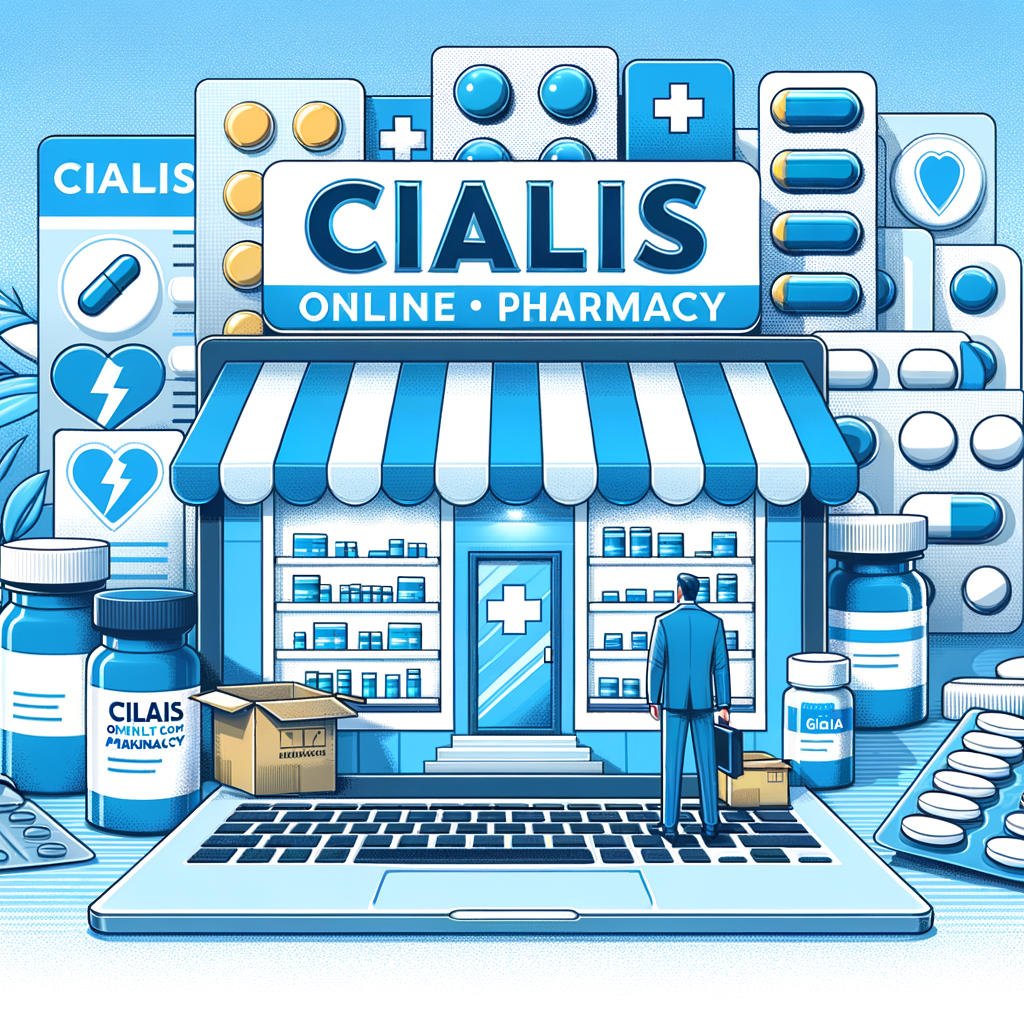Introduction
Cialis (tadalafil) helps many men with erectile dysfunction and benign prostatic hyperplasia. However, taking too much can cause serious harm. This article explains the overdose risks and what you must know to stay safe.
We will cover symptoms, deadly complications, interactions, and emergency steps. Also, you will find prevention tips and clear guidance for safe use. Read on to protect yourself and loved ones.
What Cialis Is and How It Works
Cialis belongs to a class called phosphodiesterase type 5 (PDE5) inhibitors. It relaxes blood vessels in the penis, which improves blood flow and supports erections. Doctors prescribe it for erectile dysfunction and sometimes for enlarged prostate symptoms.
Tadalafil also affects blood flow elsewhere in the body. Therefore, it can lower blood pressure and influence heart function. Because of these effects, overdoses can trigger cardiovascular problems and other severe events.
Typical Dosing and What Counts as an Overdose
Doctors usually prescribe 2.5 mg, 5 mg, 10 mg, or 20 mg doses depending on need. You take lower daily doses for ongoing use. For as-needed use, people often take 10 mg to 20 mg before sexual activity. Exceeding the prescribed dose or taking multiple doses close together can cause an overdose.
An overdose lacks a single numeric cutoff because individual tolerance varies. However, doses above 40 mg in one day or repeated high doses in a short time raise significant risk. Also, combining Cialis with other substances can effectively increase its strength.
Early Signs of Cialis Overdose
Early symptoms often involve the cardiovascular and nervous systems. You may feel lightheaded, dizzy, or faint. Rapid heartbeat, palpitations, and flushing can appear within hours.
Other early signs include severe headache, nasal congestion, and vision changes such as blurring or sensitivity to light. If you notice these symptoms after taking Cialis, stop taking it and seek medical advice.
Severe and Life-Threatening Symptoms
An overdose can cause serious outcomes like priapism, dangerously low blood pressure, and heart attack. Priapism involves a painful erection lasting longer than four hours. This condition can cause permanent tissue damage without prompt treatment.
Additionally, extreme hypotension can deprive the brain and heart of oxygen. People may lose consciousness, suffer strokes, or experience fatal heart rhythms. Therefore, you must treat severe symptoms as medical emergencies.
How Cialis Interacts with Other Drugs
Cialis can interact strongly with nitrates, alpha-blockers, and some antifungal or antibiotic medications. Combining Cialis with nitrates, commonly used for chest pain, can cause a sudden, severe drop in blood pressure. For this reason, doctors always warn against mixing these drugs.
Moreover, protease inhibitors and some macrolide antibiotics can raise tadalafil levels in the blood. As a result, the drug’s effects may intensify and increase overdose risk. Always tell your doctor about every medicine you take, including supplements.
Alcohol and Recreational Drugs: Hidden Dangers
Alcohol can increase the risk of side effects like dizziness and fainting. Heavy drinking also impairs judgment, which may lead you to take more pills than you should. Thus, mixing alcohol with Cialis increases the chance of an accidental overdose.
Recreational drugs, especially stimulants, can strain the heart while Cialis changes blood flow. Combining these substances can trigger dangerous cardiovascular reactions. Consequently, avoid recreational drugs when using Cialis.
Who Is at Higher Risk for Serious Complications
People with heart disease, low blood pressure, or uncontrolled high blood pressure face higher risks. Similarly, those with liver or kidney impairment may clear tadalafil more slowly. As a result, they can accumulate dangerous levels in the body.
Elderly patients often have multiple medical conditions and take many drugs. Therefore, older adults face higher odds of interactions and overdoses. If you fall into any of these groups, consult your doctor before using Cialis.
Signs of Priapism and Why It’s Dangerous
Priapism is a prolonged, often painful erection lasting more than four hours. It cuts off oxygen to the penile tissue, which risks permanent damage. If untreated, priapism can cause scarring and long-term erectile dysfunction.
You must seek emergency care if an erection lasts longer than four hours. Doctors will try medical or surgical techniques to restore normal blood flow. Quick action improves outcomes and can prevent permanent harm.
Cardiovascular Failures Linked to Overdose
Tadalafil affects blood vessels, which can influence heart workload. Overdose may lead to significant hypotension, heart attack, or irregular heart rhythms. People with underlying heart disease have a higher chance of these complications.
Moreover, sudden drops in blood pressure can cause syncope or falls. These events can lead to head injuries and other trauma. Thus, the cardiovascular risks extend beyond the heart itself.
Neurological and Sensory Complications
Tadalafil can affect vision and hearing in rare cases. Overdose increases these risks and can cause sudden vision loss or ringing in the ears. Although these events are uncommon, they can become permanent.
Additionally, severe drops in blood pressure can reduce brain blood flow. This reduction can cause confusion, fainting, or stroke-like symptoms. Any sudden sensory changes require prompt medical attention.
How Healthcare Professionals Treat an Overdose
Medical staff will first assess the patient’s vital signs and symptoms. They will monitor blood pressure, heart rhythm, and oxygen levels continuously. Emergency teams may perform blood tests and ECGs to guide care.
Treatment often involves supportive measures like intravenous fluids and medications to correct blood pressure. In severe cases, they may use vasopressors, airway support, or dialysis if necessary. For priapism, urologists may perform aspiration or inject drugs to relieve the erection.
Home First-Aid Steps for Suspected Overdose
If you suspect an overdose, call emergency services immediately. While waiting, keep the person calm and seated or lying down. Elevate their feet if they feel dizzy or faint, and monitor breathing and responsiveness.
Do not try to induce vomiting or give unknown remedies. Also avoid mixing with other medicines in an attempt to counteract effects. These actions can worsen the situation or mask key symptoms.
Prevention: Safe Dosing and Good Practices
Always follow your doctor’s prescription and read the patient information leaflet. Start with the lowest effective dose and avoid doubling doses to “catch up.” If a dose does not work, consult your prescriber before trying more.
Keep an updated list of all medicines and supplements. Share this list with every healthcare provider. Also, avoid taking Cialis with nitrates, heavy alcohol, or recreational drugs.
Tips for Avoiding Accidental Overdose
Store medication in its original container with clear labeling. Keep it out of reach of children and pets. Moreover, set reminders to avoid taking duplicate doses by mistake.
If you use erectile dysfunction meds intermittently, track when you last took a pill. This tracking prevents close-together dosing. Finally, consult your doctor when traveling or changing routines.
What to Tell Your Doctor Before Starting Cialis
Inform your doctor about heart problems, recent strokes, low blood pressure, and vision or hearing issues. Also disclose kidney or liver disease and any medications you take. Mention herbal supplements like ginkgo or St. John’s wort.
Be honest about alcohol and recreational drug use. Your doctor will adjust dosing or recommend alternatives if risk rises. Good communication reduces overdose risk and improves overall safety.
Alternatives to Cialis if You Are at Risk
If doctors find high risk, they may recommend other treatments. These include Viagra (sildenafil) with careful dosing, vacuum erection devices, or penile injections. Also, psychosocial therapy can help erectile dysfunction caused by stress or anxiety.
Sometimes doctors treat underlying conditions like high blood pressure or diabetes first. Treating the cause often improves sexual function without medication. Speak with your physician about what option fits your health.
Myths and Misconceptions About Overdose
Some people think more pills equal better results. But more often, higher doses increase side effects without extra benefit. Also, “natural” supplements can interact with Cialis and raise overdose risk.
Another myth claims Cialis is safe with all heart medications. In reality, nitrates and some blood pressure drugs create dangerous interactions. Always verify compatibility with your prescriber or pharmacist.
Legal and Safety Issues with Online Purchases
Buying Cialis from unverified online sources carries risks. Counterfeit pills may contain unknown doses or harmful adulterants. These products can increase overdose risk and cause unexpected reactions.
Therefore, buy from licensed pharmacies or use a verified telemedicine service. Ask for a prescription and confirm medication authenticity. Your health depends on safe, regulated products.
Recognizing Overdose in Vulnerable Populations
Children or pets who ingest Cialis face serious risks. Even small doses can cause harmful drops in blood pressure. If ingestion occurs, call poison control and seek emergency care immediately.
Older adults may show subtle overdose signs like confusion or fainting. Caregivers should watch for sudden changes in behavior or consciousness. Immediate medical assessment can prevent severe outcomes.
Long-Term Consequences After an Overdose
Survivors of severe overdose may experience lasting damage. Priapism can cause permanent erectile dysfunction. Likewise, severe hypotension or a heart attack may reduce cardiovascular function long term.
Additionally, brain injuries from prolonged low oxygen can cause cognitive problems. Therefore, follow-up care and rehabilitation may become necessary. Early intervention improves recovery chances.
How to Talk to Your Partner About Safe Use
Be honest and proactive when discussing medication use with your partner. Explain the recommended dose and potential risks in clear terms. Also, agree to avoid mixing alcohol or other substances during use.
Discuss what to do in an emergency, such as priapism or fainting. Having a plan reduces panic and speeds appropriate action. Moreover, open communication builds trust and safety.
When to Restart Cialis After an Overdose
Only restart Cialis after your healthcare provider clears you. Doctors will assess your recovery and may recommend a lower dose or different treatment. They will also review all your medications to reduce future risk.
Do not resume use based on how you feel alone. Symptoms can subside while risk still exists. A medical checkup provides the safest path forward.
Summary and Key Takeaways
Cialis helps many people when used correctly. Yet overdose carries dangerous and sometimes fatal risks. Be aware of signs like dizziness, prolonged erection, and sudden vision loss.
Avoid mixing Cialis with nitrates, heavy alcohol, and recreational drugs. Tell your doctor about all medicines and conditions before starting it. In case of overdose, seek emergency care immediately.
Frequently Asked Questions (FAQs)
1. How much Cialis is deadly?
There is no single fatal dose for everyone. Risks depend on age, health, interactions, and tolerance. Doses above 40 mg in a single day or repeated high doses increase danger considerably.
2. Can one extra Cialis pill kill you?
One extra pill usually causes strong side effects rather than death. However, if you combine it with nitrates or have heart disease, even one extra pill can be life-threatening.
3. How long after taking Cialis can an overdose occur?
Symptoms can appear within minutes to hours after ingestion. Peak effects typically occur around two hours. Yet, tadalafil has a long half-life and can affect you for up to 36 hours.
4. Is priapism reversible if I act quickly?
Yes, quick medical treatment improves the chance of full recovery. Treating priapism within four to six hours helps prevent permanent damage. Delays increase the risk of lasting erectile dysfunction.
5. Can mixing Cialis and alcohol cause death?
Mixing can cause severe hypotension, which can lead to fainting, falls, or heart problems. While death is rare from alcohol alone, combining substances raises the overall danger.
6. What if a child swallows Cialis?
Treat any pediatric ingestion as an emergency. Call poison control immediately and seek emergency care. Children tolerate tadalafil poorly and may suffer severe effects.
7. Will activated charcoal help after an overdose?
Activated charcoal sometimes reduces absorption if given soon after ingestion. Clinicians will decide based on timing and the patient’s condition. Do not administer without medical advice.
8. Can kidney disease make Cialis overdose worse?
Yes. Kidney impairment can slow drug elimination and raise blood levels. Doctors often lower doses for people with significant kidney disease.
9. How do I dispose of leftover Cialis safely?
Return unused medication to a take-back program or follow FDA disposal guidelines. Do not flush pills unless the label instructs it. Safe disposal prevents accidental ingestion.
10. Are there long-term follow-ups after a severe overdose?
Yes. Doctors often recommend cardiology, urology, and possibly neurology follow-up. They will monitor for lasting heart, penile, or brain effects. Rehabilitation may be necessary in severe cases.
References
– U.S. Food & Drug Administration — Tadalafil Information: https://www.fda.gov/drugs/postmarket-drug-safety-information-patients-and-providers/tadalafil-information
– Mayo Clinic — Tadalafil (Oral Route) Description and Patient Counseling: https://www.mayoclinic.org/drugs-supplements/tadalafil-oral-route/description/drg-20067140
– American Urological Association — Priapism Guidelines: https://www.auanet.org/guidelines/priapism-guideline
– National Institutes of Health (MedlinePlus) — Tadalafil: https://medlineplus.gov/druginfo/meds/a607032.html
– Poison Control — Tadalafil and Overdose Information: https://www.poison.org/articles/tadalafil-overdose
– UpToDate — Management of PDE5 inhibitor overdose (subscription may be required): https://www.uptodate.com/contents/management-of-overdose-of-phosphodiesterase-5-inhibitors
If you want, I can create a printable emergency checklist or a one-page guide to share with family members. Would that help?


